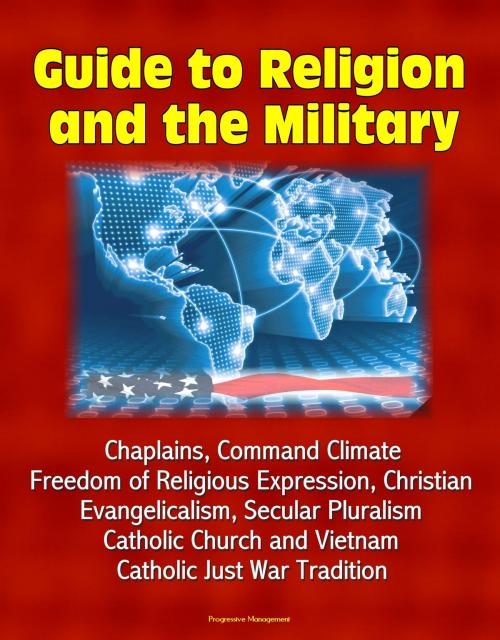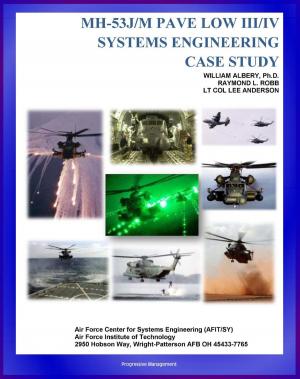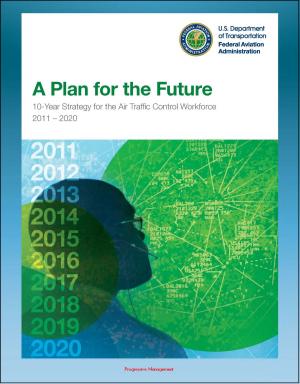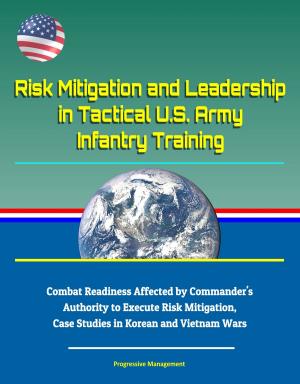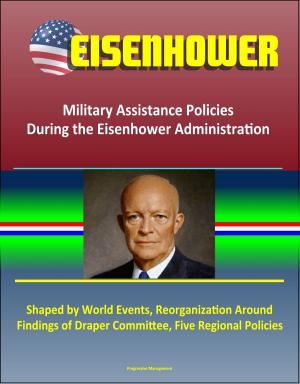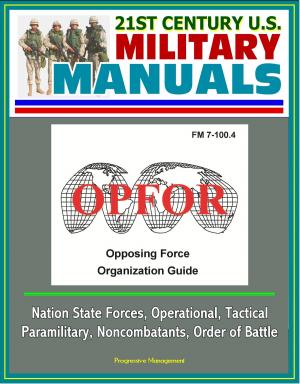Guide to Religion and the Military: Chaplains, Command Climate, Freedom of Religious Expression, Christian Evangelicalism, Secular Pluralism, Catholic Church and Vietnam, Catholic Just War Tradition
Nonfiction, Religion & Spirituality, Christianity, Church, Church & State, History, Military, Vietnam War, Asian| Author: | Progressive Management | ISBN: | 9781311533319 |
| Publisher: | Progressive Management | Publication: | May 7, 2015 |
| Imprint: | Smashwords Edition | Language: | English |
| Author: | Progressive Management |
| ISBN: | 9781311533319 |
| Publisher: | Progressive Management |
| Publication: | May 7, 2015 |
| Imprint: | Smashwords Edition |
| Language: | English |
Professionally converted for accurate flowing-text e-book format reproduction, this unique compilation of thirteen military documents provides special insight into the role of religion in the military and wars. Contents include: Religion and the Military: A Growing Ethical Dilemma * Combatant Commander Challenges and the Role of Religion and History * Instruments of Peace: The Viable and Strategic Role of Religious Leadership Factors in Averting War * Freedom of Religion and Conscience in the Military: Clarifying Policy * A Soldier's Morality, Religion, and Our Professional Ethic: Does the Army's Culture Facilitate Integration, Character Development, and Trust in the Profession? * The Influence of the Catholic Church on the Eisenhower Administration's Decision to Directly Intervene in Vietnam * Spiritual Dormancy: the Strategic Effect of the Depravation of God * Removing the Stigma: For God and Country * Sustaining Souls * The Modern Catholic Just War Tradition * Religious Rhetoric in National Security Strategy Since 9/11 * Religious Roots: A Prolegomenon to Moral Judgment in American Policy * Growing an Ideology: How the Mormons Do It.
Some examples:
Religion and the Military: A Growing Ethical Dilemma - Ethical dilemmas over the issue of freedom of personal religious expression and fair treatment for all faith groups are creating conflicts within the military, both inside and outside the chaplaincies. A lawsuit filed by a group of Navy chaplains, alleging discrimination by the Chaplain Corps on the basis of their religion, is currently making its way through the courts. Recently, a few senior officers at the Air Force Academy were accused of using their position to inappropriately propagate Christian views. Given the fact that non-Judaeo-Christian religious groups are proliferating in the military, it is likely that such conflicts will continue to occur absent an intentional strategy to address this issue. This SRP will review the history of this growing dilemma and recommend ways to address it in a way that is not only fair to all concerned but upholds the American tradition of tolerance toward all religious groups and contributes to a positive command climate. The young man who knocked on my door and asked, somewhat hesitantly, "Got a minute, chaps?" seemed at first like so many others who want to talk to a chaplain but are reluctant to do so. I invited him to sit down and tell me what was on his mind. His question was one I did not anticipate. In retrospect, however, this was one of the more honest and memorable conversations I have had during my 19-plus years as a Navy chaplain. He asked, "With all due respect, sir, what am I as an atheist supposed to do when you offer a public prayer during a command function? I can't leave, and if I bow my head and participate I feel that I am being hypocritical. What do I do?"
Combatant Commander Challenges and the Role of Religion and History - The challenges posed to the Commandant Commander (CCDR) in conducting operations can be captured in a thorough understanding of Joint Publication 5-0, which provides a checklist of inputs to the design, but is wanting on two key issues. First, the doctrine glosses over the significance of history by simply adding the adjective of "relevant" before the term "history".
Instruments of Peace: This research project explores the extent to which religious leadership factors and actors play constructive roles in preventing war. My interest in this topic is directly related to my dual professional posture in the military. My ordination as an Elder in the African Methodist Episcopal Zion Church affirms and endorses me to serve as a commissioned chaplain in the U.S. Air Force. As a chaplain, my primary tasks involve: 1) ensuring that members understand the nature of and have full opportunity for the free exercise of religion; and 2) providing pastoral and spiritual care to members and their families.
Professionally converted for accurate flowing-text e-book format reproduction, this unique compilation of thirteen military documents provides special insight into the role of religion in the military and wars. Contents include: Religion and the Military: A Growing Ethical Dilemma * Combatant Commander Challenges and the Role of Religion and History * Instruments of Peace: The Viable and Strategic Role of Religious Leadership Factors in Averting War * Freedom of Religion and Conscience in the Military: Clarifying Policy * A Soldier's Morality, Religion, and Our Professional Ethic: Does the Army's Culture Facilitate Integration, Character Development, and Trust in the Profession? * The Influence of the Catholic Church on the Eisenhower Administration's Decision to Directly Intervene in Vietnam * Spiritual Dormancy: the Strategic Effect of the Depravation of God * Removing the Stigma: For God and Country * Sustaining Souls * The Modern Catholic Just War Tradition * Religious Rhetoric in National Security Strategy Since 9/11 * Religious Roots: A Prolegomenon to Moral Judgment in American Policy * Growing an Ideology: How the Mormons Do It.
Some examples:
Religion and the Military: A Growing Ethical Dilemma - Ethical dilemmas over the issue of freedom of personal religious expression and fair treatment for all faith groups are creating conflicts within the military, both inside and outside the chaplaincies. A lawsuit filed by a group of Navy chaplains, alleging discrimination by the Chaplain Corps on the basis of their religion, is currently making its way through the courts. Recently, a few senior officers at the Air Force Academy were accused of using their position to inappropriately propagate Christian views. Given the fact that non-Judaeo-Christian religious groups are proliferating in the military, it is likely that such conflicts will continue to occur absent an intentional strategy to address this issue. This SRP will review the history of this growing dilemma and recommend ways to address it in a way that is not only fair to all concerned but upholds the American tradition of tolerance toward all religious groups and contributes to a positive command climate. The young man who knocked on my door and asked, somewhat hesitantly, "Got a minute, chaps?" seemed at first like so many others who want to talk to a chaplain but are reluctant to do so. I invited him to sit down and tell me what was on his mind. His question was one I did not anticipate. In retrospect, however, this was one of the more honest and memorable conversations I have had during my 19-plus years as a Navy chaplain. He asked, "With all due respect, sir, what am I as an atheist supposed to do when you offer a public prayer during a command function? I can't leave, and if I bow my head and participate I feel that I am being hypocritical. What do I do?"
Combatant Commander Challenges and the Role of Religion and History - The challenges posed to the Commandant Commander (CCDR) in conducting operations can be captured in a thorough understanding of Joint Publication 5-0, which provides a checklist of inputs to the design, but is wanting on two key issues. First, the doctrine glosses over the significance of history by simply adding the adjective of "relevant" before the term "history".
Instruments of Peace: This research project explores the extent to which religious leadership factors and actors play constructive roles in preventing war. My interest in this topic is directly related to my dual professional posture in the military. My ordination as an Elder in the African Methodist Episcopal Zion Church affirms and endorses me to serve as a commissioned chaplain in the U.S. Air Force. As a chaplain, my primary tasks involve: 1) ensuring that members understand the nature of and have full opportunity for the free exercise of religion; and 2) providing pastoral and spiritual care to members and their families.
